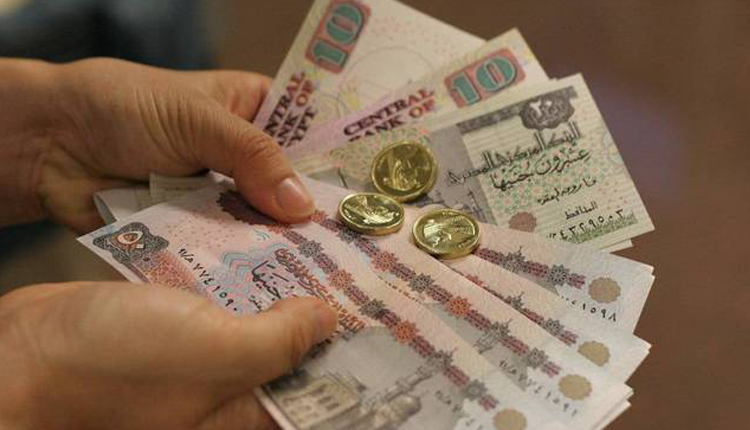A proposed change to the way Egypt taxes bank profits could encourage lenders to boost credit to the private sector and push up yields on Treasury debt, raising its appeal among foreign investors, economic analysts say.
The Cabinet last week gave preliminary approval to a proposed amendment to the way bank taxes are calculated by scrapping a provision that lets local banks deduct taxes already paid on treasuries from their bottom-line income tax.
If a final version of the measure is approved by parliament in the coming months as is widely expected, it would raise the cost of buying government securities and could induce banking entities to divert funds away from treasuries to other sectors.
“The law would push banks to lend more toward the private sector,” said Hany Farahat, senior economist at investment bank CI Capital.
Egyptian banks have for years been top-heavy on government lending at the expense of the private sector, economists say.
Banks held 2.35 trillion Egyptian pounds ($131.58 billion) in government securities at the end of September compared with 804.8 billion pounds in outstanding loans to the private business sector.
Higher Treasury yields
The proposed tax change, which hit local banking stocks when it was announced on Sunday, could also put pressure on the Finance Ministry to allow Treasury yields to rise as it seeks to finance a budget deficit that was 9.8 percent of GDP in the fiscal year ending June 2018.
“The new bank levy may increase the T-bill rates by 200 bps (basis points) as they see higher pre-tax yields,” investment bank Arqaam Capital said in a research note on Thursday.
This could bring in more foreign investors.
“The strong outflow of foreign capital in T-bill market may now slow, however, or potentially reverse if rates on T-bills were now to be pushed back upwards, which in turn would make the carry trade more attractive,” the note added.
Foreign investors cut their holdings in Egyptian treasury bills and bonds by $8 billion in the six months ending September to $13 billion, part of a global exit from emerging market debt.
A separate decision by the central bank last week that will end guarantees of foreign currency for investors exiting the government securities market may, however, make Egyptian treasuries less attractive.
The “repatriation mechanism,” which will end on Dec. 4, was put in place in March 2013 when confidence in Egypt’s ability to provide foreign currency was cutting into investment inflows.
Economists say the mechanism’s removal will lead overseas investors to channel funds through the banking system instead of the central bank, making banks more liquid in foreign currency but also potentially making the exchange rate more volatile.
Still, it is uncertain how much leverage banks have with the Finance Ministry to push up Treasury yields to offset higher tax bills.
“It’s a symbiotic relationship, they both need each other,” said Wael Ziada, head of investment company Zilla Capital.
Banks have been lobbying the government to water down the tax proposal, which Arqaam Capital and investment bank Pharos Holding said could slash the sector’s earnings by 23 percent.
($1 = 17.8600 Egyptian pounds)
Source: Reuters


